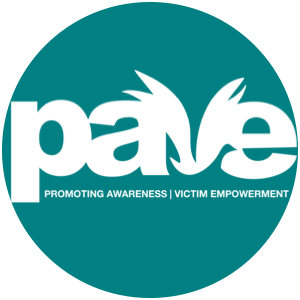Revenge Porn & The Law
With the normalization and prevalence of sexting and creating sexual content in recent years, exchanging photographs consensually can be a way for people to express themselves sexually. Sexting has become a very common sexual act that many engage in. However, some individuals may take advantage of others and share or view the content without their permission. This is called revenge porn.
Revenge porn is the distribution of sexually explicit media, either images or video, of another person’s intimate body parts, nudity, or engagement in sexual acts that are taken and/or shared without the individual’s consent. Revenge porn includes content that was made consensually but intended to be kept private and content that was made without the survivor’s consent. All revenge porn cases involve non- consensual distribution. Distribution may look like showing the content to others, sending it to others through text or direct messages, or posting it online.
Many only qualify the non- consensual distribution of sexual content as revenge porn if there is malicious intent attached to it’s distribution. Malicious intent may look like an abuser trying to spread the material with the intent of getting the individual fired from their job or ruining their current relationship. However, distributing images of another person’s body without their permission takes away their ability to consent to who engages in a sexual act with their body. Engaging with sexual content is a sexual act and everyone deserves to have the right to decide who engages with them sexually. Regardless of whether or not there are ulterior intentions when spreading the content beyond the objectification of the survivor, these behaviors are abusive. Distributing sexual content non- consensually is itself a malicious act. This clause to the definition of revenge porn may seem like just semantics, but it has real-life ramifications.
Revenge porn is not a crime at the federal level in the United States meaning that it is each state’s responsibility to protect its citizens by creating revenge porn laws. This has resulted in varying laws and definitions of revenge porn. When defining revenge porn, some states have included malicious intent. Many survivors are unable to prove additional malicious intent and cannot receive justice. Ultimately, the legal definition of revenge porn should be reevaluated to protect survivors by criminalizing non-consensual distribution regardless of malicious intent.
Survivors of revenge porn can face many other challenges when reporting. States classify revenge porn differently. In some states it is a misdemeanor, in others it is a felony, in some it can be both, and South Carolina and Massachusetts have no revenge porn laws currently in place (cybercivilrights.org). Thankfully, they currently have pending bills. When revenge porn is classified as a misdemeanor, survivors only have one year to report the crime before the statute of limitations is up. Revenge porn, by nature, is done without the individual’s knowledge. The survivor may not know for a long time that the crime was committed and by the time they do, it may be too late to report.
Current legal classifications are outdated and cause many survivors to go without legal justice. The distribution and/or possession of sexual content without the subject’s consent should be criminalized regardless of intent and the statute of limitations should be extended.
If you become targeted by revenge porn, it is not your fault. You have the right to engage in a consensual sexual act without from being violated and the right to choose who engages with your body. To learn more about the issues surrounding revenge porn laws in the United States, please check out our Rewriting Revenge Porn Toolkit.
Resources to respond to revenge porn:
-CCRI Crisis Helpline at 844-878-CCRI (2274)
-Cyber Civil Rights Legal Project
1-206-370-6682
1-800-THE-LOST (843-5678)
-FBI Internet Crime Complaint Center (IC3)
For more information:
-On the laws in your state:
Cybercivilrights.com
-About revenge porn:
Loveisrespect.org
-About revenge porn, as well as UK laws:
safeline.org.uk
Visit Survivors.org to find supportive resources near you.
Written by Fall 2021 intern Elle de los Reyes
